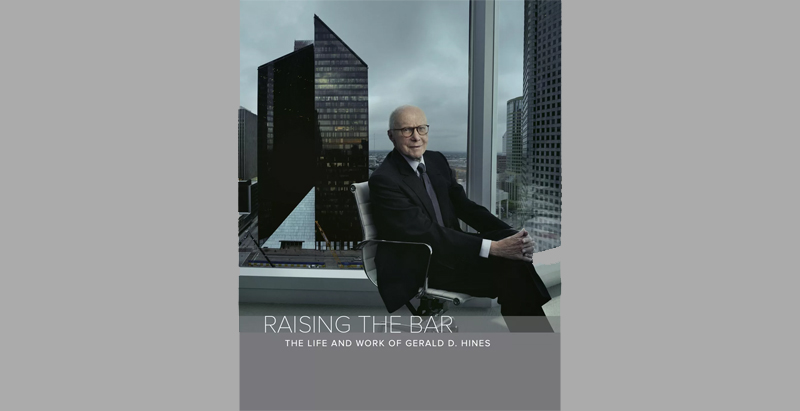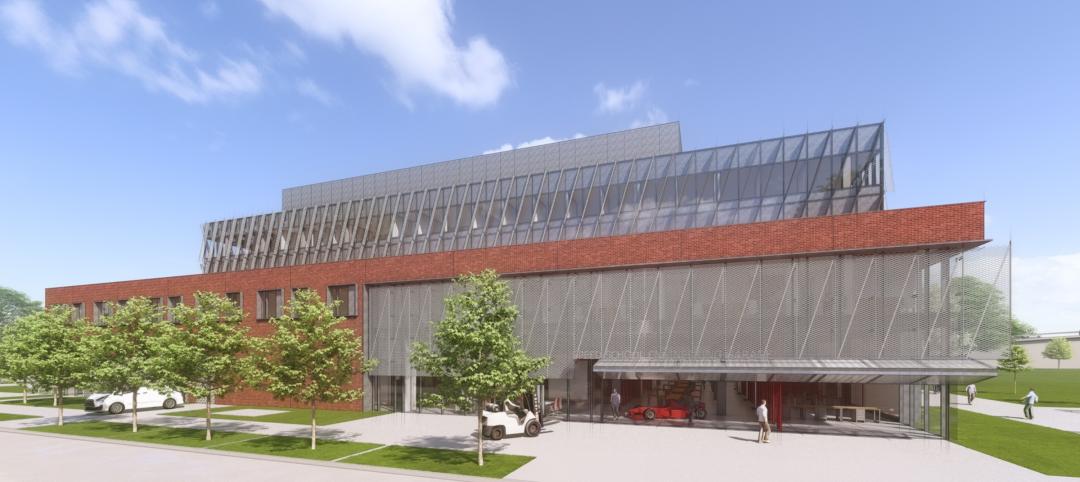My life is rather good, but it’s negligible compared to what that man has done for the art of architecture.” It’s not every day that a Pritzker Laureate heaps praise on a commercial real estate developer. But that’s just want happened during a 1998 lecture by the late postmodern design pioneer Philip Johnson.
Reminiscing about his collaborations with Gerald D. Hines, Johnson gushed over the Houston developer, calling Hines his “mentor and Medici,” adding, “Everything I’ve done, and everything I’ve been, I owe to Gerry Hines.”
Over a span of nearly 30 years, Hines and Johnson teamed to create more than a dozen groundbreaking commercial developments. The unlikely duo—Hines a Gary, Ind.-born math whiz who carried a slide rule in his suit jacket pocket all of his professional life; Johnson, a Harvard-educated, East Coast design elite best known for his Glass House and work with Ludwig Mies van der Rohe—threw the developer-architect rulebook out the window in creating some of Hines’ most daring—and successful—developments.
Most notable is Houston’s Pennzoil Place, with its twin, 36-story trapezoidal towers. Some credit the acclaimed project, completed in 1975, with sparking a reconnection between architecture and commercial real estate development in the U.S. “After Pennzoil, everyone wanted something other than a box, it seemed,” wrote architecture critic Paul Goldberger in 2012.
The Hines-Johnson alliance is one of countless stories chronicled by author Mark Seal in a new 464-page book about the developer’s career and life, “Raising the Bar: The Life and Work of Gerald D. Hines.”
The book offers a glimpse into the man who, fresh out of Purdue University in 1948 with a degree in mechanical engineering, road tripped to Houston with little money and no place to live. In less than a decade, Hines was developing warehouses and small office buildings throughout the city. By the late 1960s, he was working on what would become some of the city’s most iconic buildings: One Shell Plaza, The Galleria, and later Pennzoil Place and Williams Tower.
Through his stories and projects, Hines, who turns 91 this year, offers a wealth of lessons in real estate development. A few that stuck out:
Know how to spot an opportunity. Hines was one of the first developers to gamble on the idea of high-rise living in Houston when he planned the 16-story Willowick apartment complex in 1963. While others questioned his move, Hines had a trick up his sleeve. He spotted a niche market that wasn’t being served: housing for widows, who preferred the security and efficiency of high-rise living over single-family homes.
Take pride in ownership. While other developers profit from flipping their properties, Hines favors the build-and-hold strategy. “I didn’t think anybody built them better than I did,” he said. “I believed they’d be worth more in the future.”
Harness the power of great architecture. From Bruce Graham to Gyo Obata to Johnson, Hines invested in quality design because he realized the market was willing to pay for something that is truly unique. Great architecture makes good business sense.
For anyone who is fascinated by the world of commercial real estate development, “Raising the Bar” is a must-read. Let’s just hope that Hines’ lifelong passion for creating great buildings inspires a new breed of holistic, design-minded developers.
Related Stories
Healthcare Facilities | Jul 22, 2024
5 healthcare building sector trends for 2024-2025
Interactive patient care systems and trauma-informed design are among two emerging trends in the U.S. healthcare building sector, according to BD+C's 2024 Healthcare Annual Report (free download; short registration required).
Office Buildings | Jul 22, 2024
U.S. commercial foreclosures increased 48% in June from last year
The commercial building sector continues to be under financial pressure as foreclosures nationwide increased 48% in June compared to June 2023, according to ATTOM, a real estate data analysis firm.
Codes and Standards | Jul 22, 2024
Tennessee developers can now hire their own building safety inspectors
A new law in Tennessee allows developers to hire their own building inspectors to check for environmental, safety, and construction violations. The law is intended to streamline the building process, particularly in rapidly growing communities.
Codes and Standards | Jul 22, 2024
New FEMA rules include climate change impacts
FEMA’s new rules governing rebuilding after disasters will take into account the impacts of climate change on future flood risk. For decades, the agency has followed a 100-year floodplain standard—an area that has a 1% chance of flooding in a given year.
Construction Costs | Jul 18, 2024
Data center construction costs for 2024
Gordian’s data features more than 100 building models, including computer data centers. These localized models allow architects, engineers, and other preconstruction professionals to quickly and accurately create conceptual estimates for future builds. This table shows a five-year view of costs per square foot for one-story computer data centers.
Sustainability | Jul 18, 2024
Grimshaw launches free online tool to help accelerate decarbonization of buildings
Minoro, an online platform to help accelerate the decarbonization of buildings, was recently launched by architecture firm Grimshaw, in collaboration with more than 20 supporting organizations including World Business Council for Sustainable Development (WBCSD), RIBA, Architecture 2030, the World Green Building Council (WorldGBC) and several national Green Building Councils from across the globe.
University Buildings | Jul 17, 2024
University of Louisville Student Success Building will be new heart of engineering program
A new Student Success Building will serve as the heart of the newly designed University of Louisville’s J.B. Speed School of Engineering. The 115,000-sf structure will greatly increase lab space and consolidate student services to one location.
Healthcare Facilities | Jul 16, 2024
Watch on-demand: Key Trends in the Healthcare Facilities Market for 2024-2025
Join the Building Design+Construction editorial team for this on-demand webinar on key trends, innovations, and opportunities in the $65 billion U.S. healthcare buildings market. A panel of healthcare design and construction experts present their latest projects, trends, innovations, opportunities, and data/research on key healthcare facilities sub-sectors. A 2024-2025 U.S. healthcare facilities market outlook is also presented.
K-12 Schools | Jul 15, 2024
A Cleveland suburb opens a $31.7 million new middle school and renovated high school
Accommodating 1,283 students in grades 6-12, the Warrensville, Ohio school complex features flexible learning environments and offers programs ranging from culinary arts and firefighting training to e-sports.
MFPRO+ News | Jul 15, 2024
More permits for ADUs than single-family homes issued in San Diego
Popularity of granny flats growing in California

















